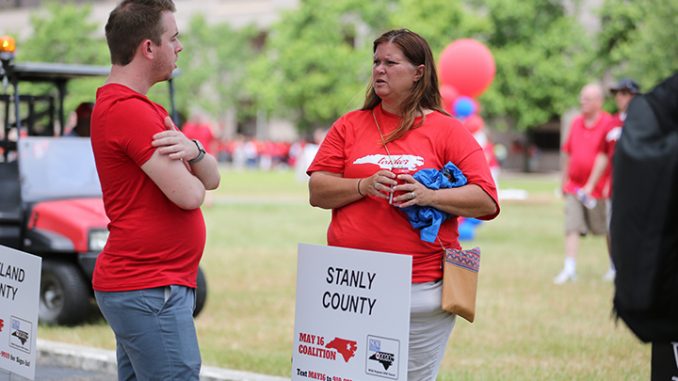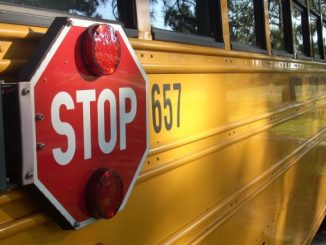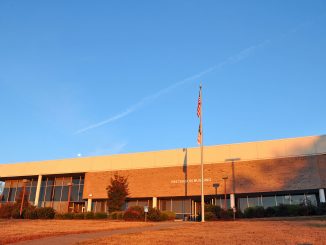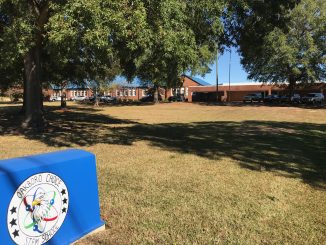
RALEIGH — As teachers descended on Raleigh last week to protest wages, state spending and Republican lawmakers, Stanly County Schools were closed due to more than 170 teachers requesting substitute teachers on May 16. In a statement, Stanly County Schools Superintendent Jeff James said, “Wednesday, May 16th has been changed to an optional workday, and will not need to be made up. The board made the decision after 174 employees in the district requested to take personal leave on May 16th in order to support a rally for public education in the state capital.”
The rally, organized by the N.C. Association of Educators, drew thousands of protestors to Raleigh who held signs supporting additional state spending on education and argued for the defeat of GOP legislators in the midterm elections. The closing of school affected many in Stanly County, and the superintendent apologized for having to close schools.
“We understand the interest teachers have in showing support for public education,” said James. “However, our first priority is always student safety. We know the closing of schools negatively affect families and our hourly staff members, and for that we apologize. But, after looking at the number of unavailable substitutes, we did not think available personnel could cover so many classrooms without compromising the best interest and safety of our students.”

At the state legislature, the signature event of the May 16 rally began at 1 p.m. on Halifax Mall — between the General Assembly and the legislative offices — where rally organizers said teachers would caucus by county to discuss local priorities. Educators were grouped alphabetically by county along the perimeter of Halifax Mall. By around 1:30 p.m., there were four people at the Stanly County sign. John Williams, an art teacher at North Stanly High with 25 years of experience, said about the small group represented, “There’s a lot up here, I just don’t know where they are.”
Williams said the current situation for teachers was “depressing.”
“It’s a good job. It’s discouraging though, knowing that we could do better, especially in our county,” said Williams. “I don’t think it’s fair that some schools have classes that other schools can’t have because of their size.”
Sam McFarlane, who lives in Charlotte and is a fifth-year teacher at West Stanly High School, said, “I really feel like the state of North Carolina is really underserving our students.”
He singled out Stanly County as an “underserved community” and said the rally was more for student resources than teacher salaries.
“As much as Stanly County’s teacher pay is not at competitive as Wake County or Mecklenburg, it’s also really what our politicians are depriving our students of,” said McFarlane. “My mobile (classroom) didn’t have air conditioning last week, and we are in a mobile unit and there are wasps and we can’t spray the wasps. It’s just the little things that make this job more frustrating than it needs to be, and it comes down to funding.”
Connie Trowbridge, who lives in Stanly County but teaches at Parkwood Middle School in Union County, was part of the Stanly County group on Halifax Mall. She said her long workdays and large class sizes were frustrating.
“I have class sizes of 39, 38 and 32, and I have a quarter of the textbooks that I need,” said Trowbridge.
Following the week of protests in Raleigh, the Stanly County School Board and Stanly County Commissioners met in a rare joint meeting on Monday. The primary discussion was the school system’s three-year strategic plan which will guide the system. James also laid out a long-term facilities plan that would include input from the county government, school system and citizens.
Both boards discussed a potential quarter-cent sales tax which would go primarily to education spending. The discussion included a verbal agreement to put the sales tax increase on the November ballot.
“With issues of school safety throughout our country, we are focused on a quarter-cent sales tax that could help upgrade our security at our schools, including cameras, fencing and securing our access points,” said James.



